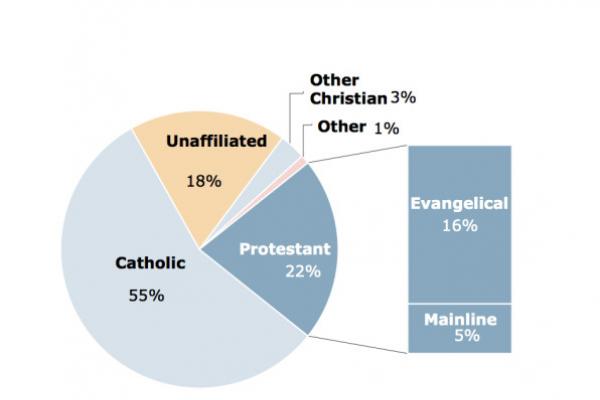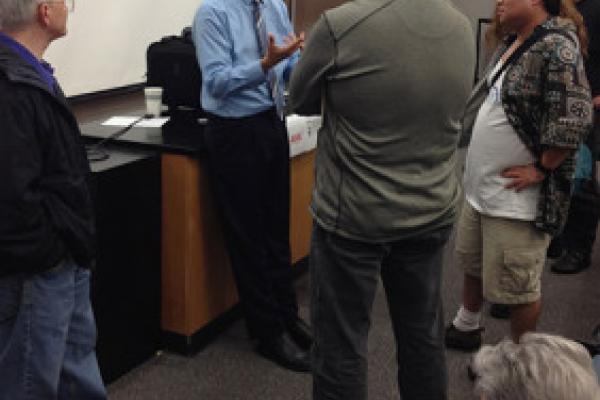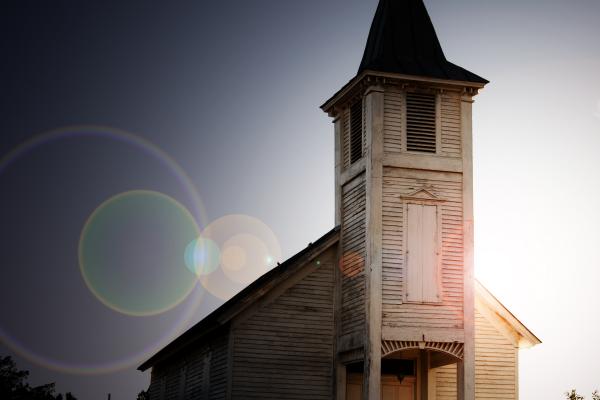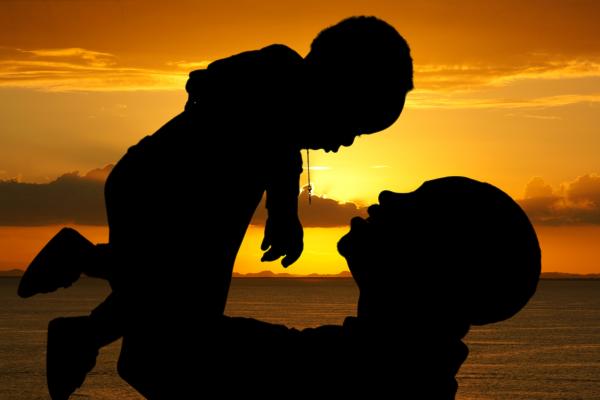This week’s Supreme Court ruling allowing sectarian prayers at public meetings dealt a body blow to atheist organizations.
That was the assessment of David Silverman, president of American Atheists, speaking Tuesday to a group of nonbelievers at Stanford University. He then described a scenario that may raise eyebrows among some atheists: working with religious groups to fight against the ruling.
That’s a change for a man who has famously described religion as a “poison.” And it is emblematic, observers say, of the change that may result from the majority opinion in Greece v. Galloway, which found that prayers citing “the blood sacrifice of Jesus Christ” are permissible before government business.
Other secularists are likewise convinced that now is the time for atheists to join forces with members of minority faiths.
The Pew Research Center’s look at “The Shifting Religious Identity of Latinos in the United States” also examined their beliefs, behavior, and views on social issues. It finds that, beyond the church doors in the lives of the faithful, there are distinct differences between Hispanic evangelicals and Hispanic Catholics:
Catholics are less likely than evangelicals to:
- Attend services weekly — Catholic, 40 percent; evangelical, 71 percent
- Pray daily — Catholic, 61 percent; evangelical, 84 percent
- Take a literal view of the Bible — Catholic, 45 percent; evangelical, 63 percent
- Think abortion should be illegal in all/most cases — Catholic, 54 percent; evangelical, 70 percent
The kidnapping of 300 teenage schoolgirls by the Islamist group Boko Haram has shamed Nigeria, Cardinal John Olorunfemi Onaiyekan said Wednesday.
Vatican Radio reported that at least 53 of the girls had escaped from their captors but 276 were still believed to be in captivity.
Move over, Christian televangelists. Atheism is coming to television.
“Why are we going to television?” he asked the audience, a mix of about 100 students and people from the local community. “It’s part of our strategy of going where we are not.”
On my way home one day this past winter, I saw a woman standing at an intersection, holding a cardboard sign saying she had nothing to eat. Her face was red from the chilling wind. She looked forlorn.
I stopped for the red light and grabbed my wallet to get a few dollars for her. Oops, all I had was a $20 bill. That’s more than I’d intended to give her.
She looked forlorn. I couldn’t just drive past.
I lowered my window and handed her the bill. Her eyes brightened. She grabbed my hand tightly with both of hers — she wore knit gloves that left her cold fingers unprotected. She squeezed hard.
“Thank you,” she said, pumping my hand. “God bless you! Thank you! Thank you!”
As I raised the window, I watched her step back, go to one knee, clasp her hands, look up to the sky and mouth the words, “Thank you! Thank you! Thank you!” Then she made the sign of the cross.
At that moment, it struck me: I’d become the answer to her prayer.
In just the latest evidence that a certain subset of conservative evangelical Christians really has no interest in occupying the real world with the rest of us, the trailer for a new movie called A Matter of Faith has hit the Internet.
The film follows the travails of a Christian father, who — horrified by the fact that his daughter’s college teaches the theory of evolution as a fact (gasp!) — challenges the villainous biology professor to a public debate that will no doubt settle the matter once and for all.
If this premise sounds strangely familiar, it could be that you’re remembering God’s Not Dead, a film released in March, in which a Christian student who — horrified by the fact that his philosophy professor is a committed atheist — challenges the dastardly nonbeliever to a debate on the existence of God that, no doubt, settled the matter once and for all.
(I’m told that the new movie was called Christians vs. the Straw Man II: This Time It’s Personal throughout production, before filmmakers decided to rename it A Matter of Faith.)
The similarities between the two pictures don’t stop there.
When evangelicals and Catholics set aside centuries of mutual suspicion 20 years ago, the idea was fairly simple: Even if we can’t always work together, at least let’s not work against each other.
Now, two decades after the launch of the group Evangelicals and Catholics Together , relations between the two groups appear stronger than ever, forged by shared battles over abortion, same-sex marriage, religious freedom, and immigration.
A new pope is finding crossover appeal among evangelicals who share Pope Francis’ emphasis on evangelism and his distaste for the fancier trappings and authoritarianism of the papacy.
To the dying church,
The ongoing decline of American Christianity is well documented. A quick Google search of “mainline decline” provides statistics, commentary, and variously tried and discarded solutions related to the struggles of liberal protestantism in the United States. More recently, these trends are showing up in conservative Christian circles as well. The attention of the media, religious scholars, and cultural warriors has been captured by the rise of the “nones,” the “spiritual but not religious,” humanists, and evangelistic atheists.
It is clear who’s ascending and who’s falling. Organized religion is doomed. You, dying church, are in trouble.
I have seen your sickness up close. The congregation where I was baptized — once full on Sunday mornings — now barely hangs on. The church where I preached in college has long since closed its doors. My pastor friends spend their days worrying about shrinking worship attendance and a lack of financial resources for carrying out their ministry. Denominations pause from fighting and splitting just long enough to make budget cuts and lay off staff.
What can be done? What should be done? Is this a new reality that we simply must accept?
Every mother and father know the struggles, frustrations, unrealistic expectations, horrific fears, and exhaustive drama associated with raising children, but let me just say this: Christianity adds an entirely new dimension to the chaos that is parenting.
Besides an assortment of play dates, sports activities, school classes, music events, and other social obligations, Christianity requires the additional burden of attending an endless array of church activities.
Mission trips, youth groups, service projects, summer camps, volunteer activities, Sunday school classes, Bible studies, evangelism outings, and church services require tons of time — it’s a huge commitment.
Christian culture goes out of its way to accommodate parents and their children, and while this is a good thing, it also adds social expectations that can often feel burdensome and frenetic — leading to burnout.
A new report on the “Shifting Religious Identity of Latinos” reads very much like a biography of Fernando Alcantar.
But once he moved to California after high school, his faith journey diverged — and derailed. Today, Alcantar, 36 calls himself a humanist.
The Pew survey report released Wednesday is subtitled: “Nearly One in Four Latinos are former Catholics.” And Alcantar is one of them.









